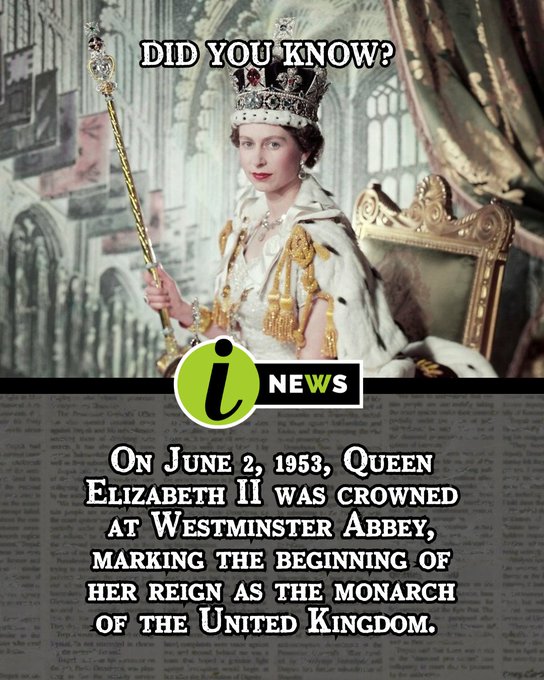Queen Elizabeth II’s coronation on June 2, 1953, marked the official commencement of her historic reign as the monarch of the United Kingdom.
At the young age of 27, she ascended to the throne with grace and poise, captivating the nation and the world.
The coronation ceremony, held at Westminster Abbey, became a milestone in British history as it was the first royal coronation to be televised, allowing millions to witness the grandeur and tradition of the event..
The significance of Queen Elizabeth II’s coronation extended beyond the ceremonial aspects.
It symbolized a new era for the British monarchy and the nation as a whole.
Following the challenging years of World War II and the subsequent rebuilding efforts, the young queen’s reign brought a sense of stability and continuity to the country.
Her coronation injected a renewed sense of optimism and pride among the British people, heralding a period of social and cultural change known as the “Elizabethan era.”.
As the head of state, Queen Elizabeth II’s reign has witnessed significant developments in Europe and the world.
She has navigated the complexities of geopolitics, technological advancements, and shifting societal norms throughout her reign, maintaining the relevance and respect of the British monarchy on a global scale.
Her role as a unifying figure within the United Kingdom and a prominent diplomatic representative for Europe has been instrumental in strengthening international relations and fostering cooperation among nations..
Looking ahead, Queen Elizabeth II’s legacy and impact on European affairs remain significant.
As one of the longest-reigning monarchs in British history, her steadfast dedication to duty and unwavering commitment to serving her people have set a high standard for future generations.
The queen’s reign continues to shape the European landscape, emphasizing the importance of tradition, continuity, and diplomacy in an ever-changing world..









Leave feedback about this